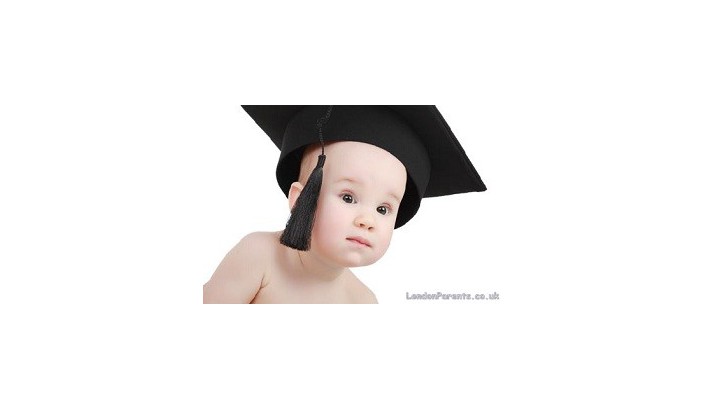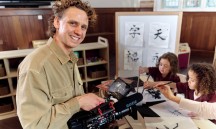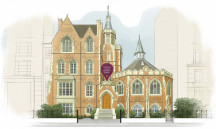-
20 July
-
04 November
-
10 July
-
12 June
-
05 June
-
24 September
-
19 September
-
10 May
-
26 April

Giving your child a love of books is quite straightforward. Start off by choosing simple books and reading aloud at least once a day. You will probably find that your child will want to look at the pictures and turn pages. This is fine, as the key to enjoyable reading is to follow your child's interest.
As your child gets older, encourage them to tell you about the pictures before you read the story. Try also to run your finger from left to right along the text (if it is in English) so your child starts to learn about 'how' words work. You can also start to point out simple words on food packaging (eg 'milk').
As well as reading to your child, it is also important to encourage speech. You can play with your child or just talk as you are engaged in other activities such as washing up or shopping.
When children are very young, they are likely to make mistakes in their speech or say quite short sentences. A good tip to develop your child's speech further is to respond with a 'correct' sentence and to extend what your child has said. For example, if your child said, "Look! That cat go up the tree", you might reply, "Yes, that cat went up the tree very fast. Perhaps he was afraid."
Rhymes
Nursery rhymes have gone in and out of fashion. Nowadays, they are very much in. The problem is that many parents don't know them any more. If you do know some rhymes, take time to sing or say them with your child. Look out for some traditional rhymes too. Rhymes such as 'Tom, Tom, the Piper's Son' have a good beat and strong sounds.
If you do not know many rhymes, ask your child's nursery, pre-school or childminder if they have any books that you could borrow. Also, the internet is a good source of sites with music and words.
Hearing and sight
Finally, it is worth checking that your child is hearing and seeing well. Slight hearing loss (known as glue ear) is quite common in young children. It is usually the result of fluid that settles in the inner ear. Get your child's hearing checked if their speech seems very muffled or if they sometimes fail to respond quickly.
Similarly, some children need glasses very early on. Check whether your child can see objects both in the distance and nearby.
Source: http://www.mumsnet.com/learning/early-years/early-learning
Related articles
- Odyssey will open its first UK campus in Marylebone, London, April 2025 - - The award-winning global preschool for children 0-5 ...
Read moreEPIC GLOBAL PRESCHOOL, ODYSSEY, COMING T...
Londonnews554XXXAn award-winning preschool offering from Asia is to open its first campus in London, bringing a new global ‘limitless learning’...
Read moreParenting is no easy task, and for Jordan and Briana Driskell, raising their quintuplets—Zoey, Dakota, Hollyn, Asher, and Gavin&mdash...
Read more0 comments
No messages yet




